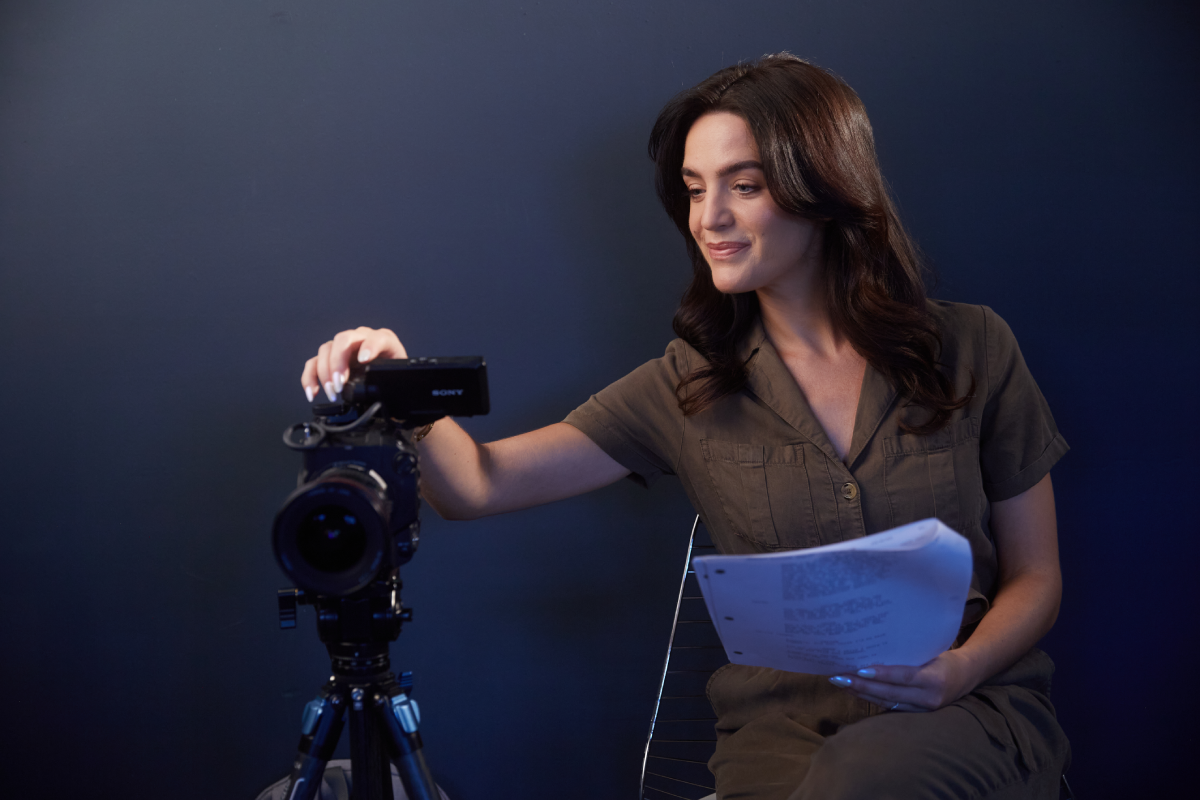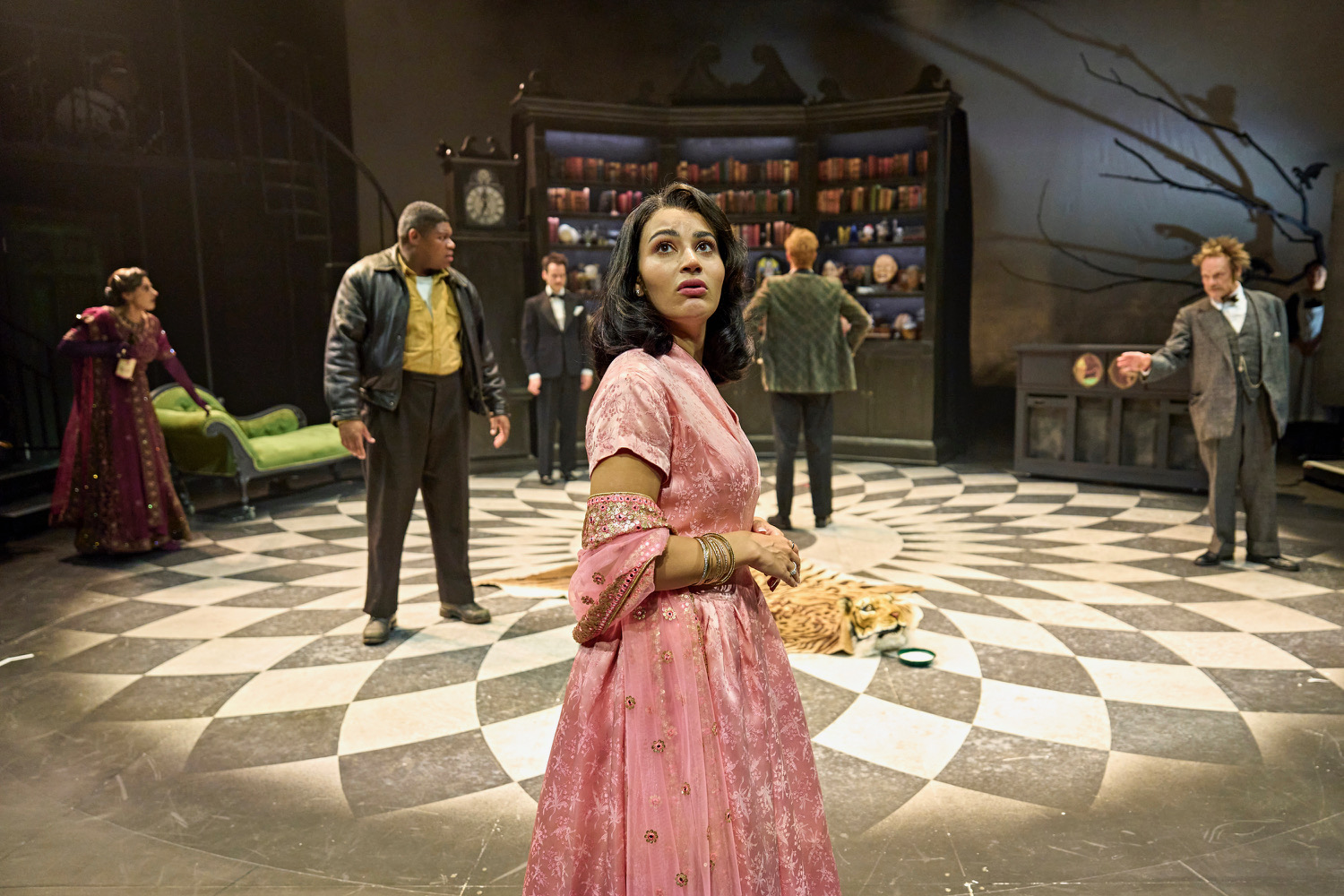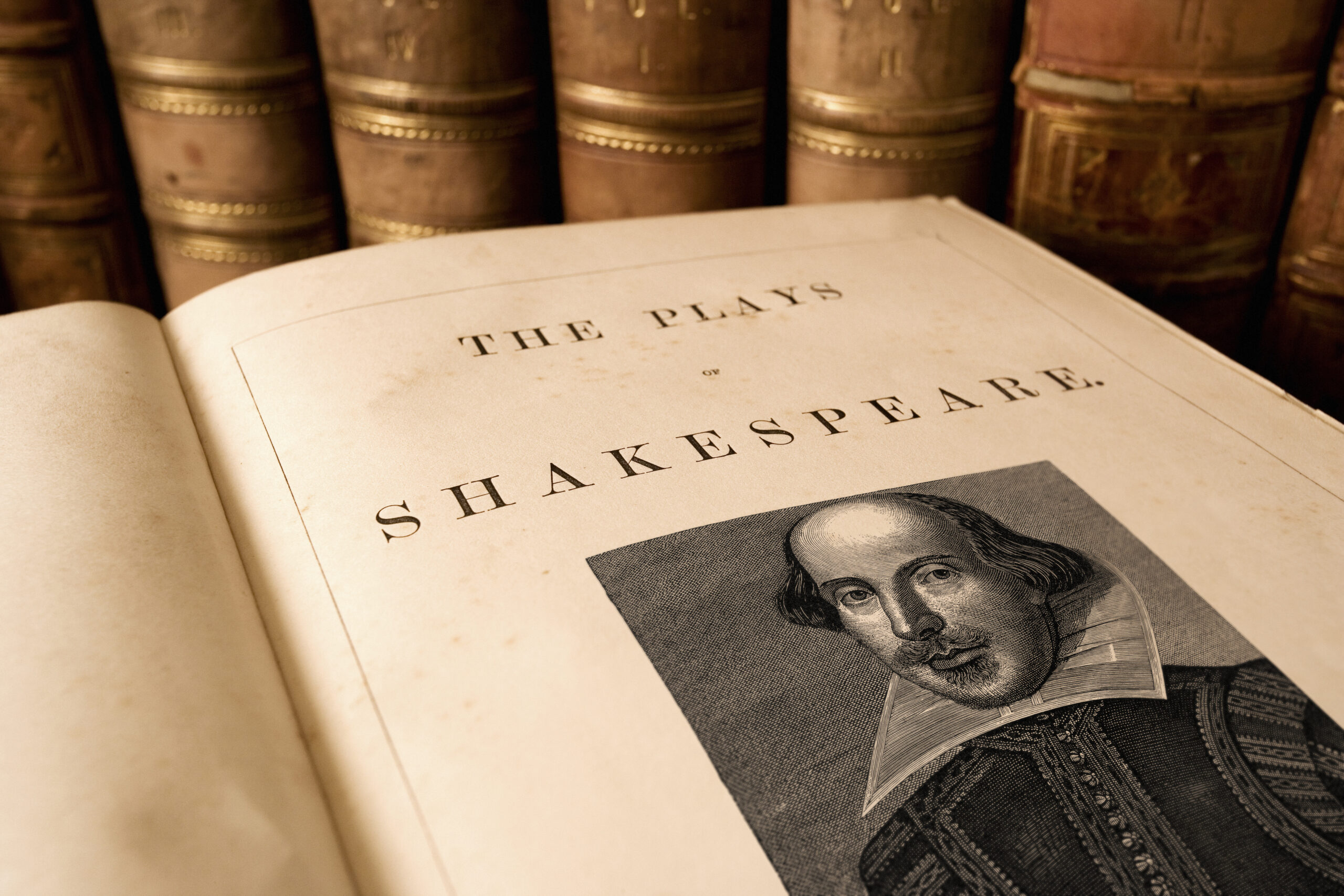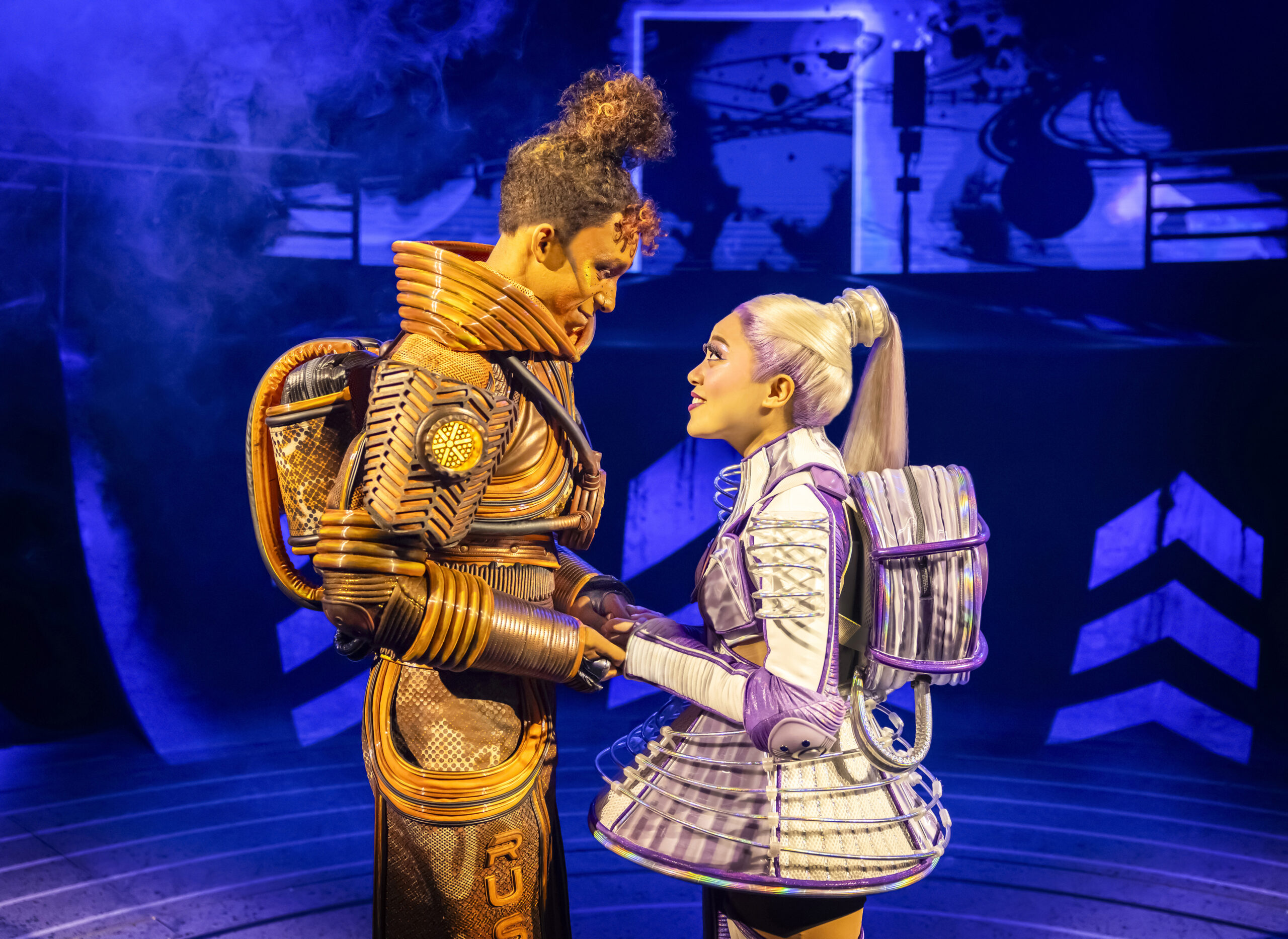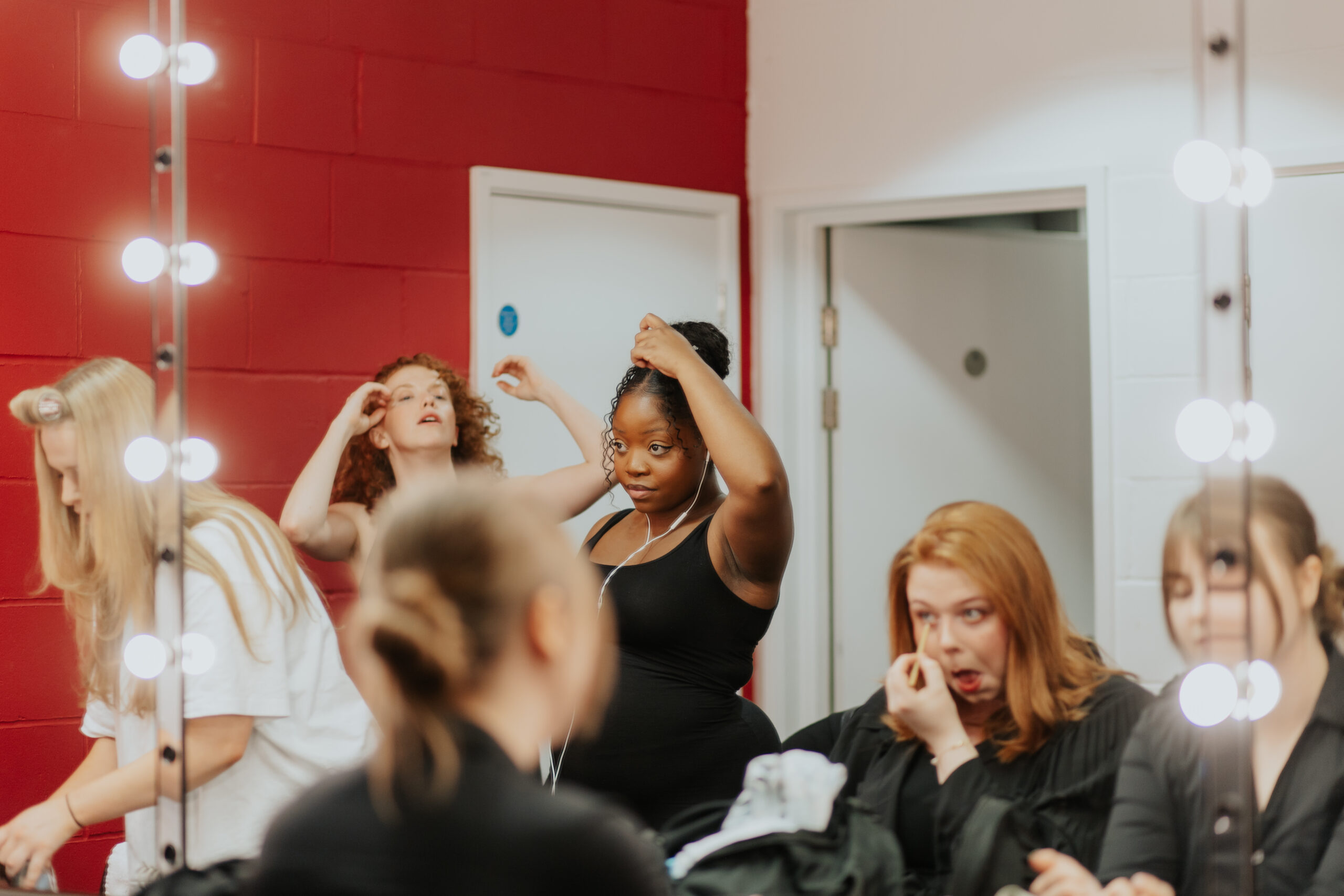Actor Nikhita Lesler discusses her recent role as ‘Lizzie’ in ‘Eng-Er-Land’, playing ‘Lady Worcester’ in Netflix’s ‘Blood, Sex and Royalty’ and ‘Poppy’ in the West End tour of ‘Noises Off’.
Travelling to different locations and performing for a variety of audiences, while bonding with your supporting cast and crew, are some of the reasons why so many actors enjoy working on touring productions. Working on a theatre tour can be an exciting time for an actor, but it isn’t easy by any means. Touring requires a level of skill that not only supports endurance, but leaves room for nuance and discovery.
Nikhita Lesler is a British actor of South Asian and Jewish heritage who, after graduating in 2020 from Mountview Academy, starred in the West End and UK tour of Noises Off as ‘Poppy’ as well as ‘Jade’ in Rifco Theatre’s UK tour of Glitterball and The Cat and the Canary for Chichester Festival Theatre. She has also recently played ‘Lizzie’ in Hannah Kumari’s one-woman theatre show Eng-Er-Land.
She’s most notably known for her role as ‘Lady Worcester’ in the television series Blood, Sex and Royalty (Netflix) and her on-screen performances as ‘Daya Chanbal’ in The Sixth Commandment (BBC) and ‘Aliya Azad’ in Casualty (BBC). Nikhita is also an established voice-over artist, and is one of the voices of Microsoft worldwide and is currently working on two major video games.
We sat down with Nikhita to discuss the unexpected demands of working on a theatre tour, how she ended up auditioning for Netflix and why the representation of mixed heritage actors is important for the industry.
Hi, Nikhita! Can you tell us how you first got into acting?
My parents put me in a local drama class to build up my confidence as a kid. I just fell in love with stories. It felt like playtime was never over except you got paid to do it. I just thought that was the coolest thing ever. I still do to be honest.
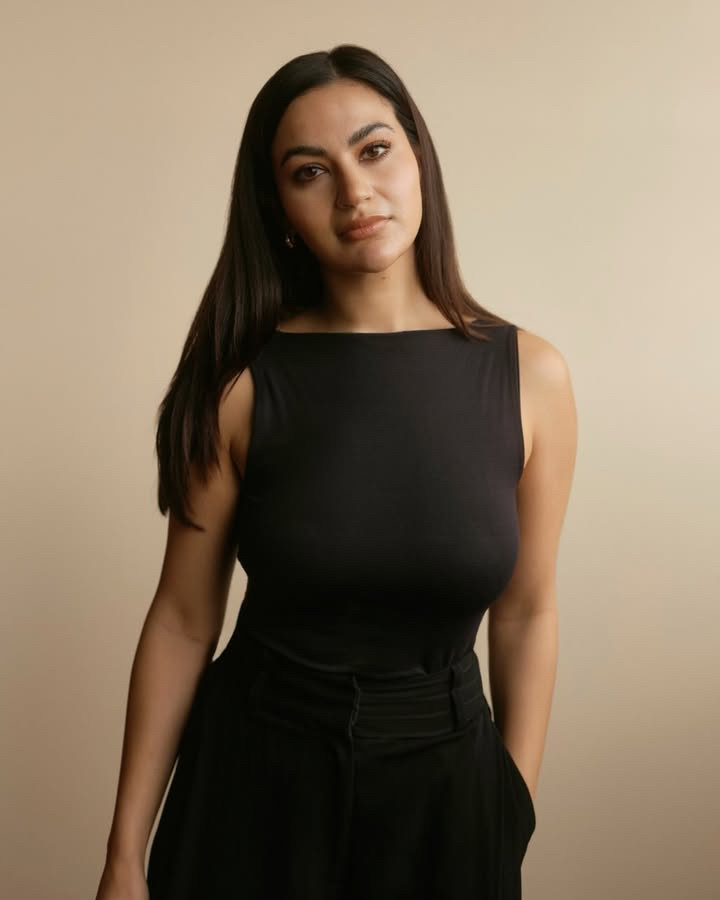
Nikhita Lesler. Image credit: Harry Livingstone
How did your training at Mountview Academy prepare you for working in theatre?
To be honest, nothing really beats learning on the job. There are multiple routes to working in theatre, and drama school isn’t the only one. That said, my favourite part of training at Mountview was working with outside directors, which closely mimics a real show’s rehearsal process.
I remember doing a project with Matthew Dunster, whose work I’ve always admired. I walked in every day with a big grin on my face, excited to be in his world. I learned so much from him, and he still inspires me. One of the biggest lessons he taught me was to care less about what others think and just focus on the work. That mentality has really stuck with me.
How was your experience working on the UK tour of ‘Noises Off’?
I really cherish the time I had on the Noises Off tour. I got to learn from some of the greats. I remember sneaking down earlier than my call time to watch a scene between Matthew Kelly, Simon Coates and Simon Shepherd just to watch how they were working the scene together. Observing how they approached their roles was so insightful to me. I learned so much from the actors in that show. I feel truly grateful to have had the opportunity to be part of such an iconic production.
What was the audition process like for ‘Noises Off’?
There was a huge train delay, so when I came in for my first round, I came in super flustered, which in hindsight was absolutely perfect for Poppy. I met with Ginny Schiller, the casting director, and Lindsay Posner, who was directing the show. I did the Poppy scenes from Act Two a few times under different directions from Lindsay, and then soon after I found out I was through to the recall rounds.
When I turned up to my recall – I was an hour early this time just in case – we read the iconic scenes of Poppy and ‘Tim’ with the tannoy and then some Poppy and ‘Lloyd’ scenes too. I just remember really enjoying it and thinking how funny the text was. When my agent told me I’d booked the job, I think I must have said, “What, me?” about 100 times to him!

Nikhita Lesler with Matthew Kelly in ‘Noises Off’. Image credit: Pamela Raith
What can you share about the demands of working on a touring production?
Each new week, you have to adapt to where you are, and fast. We were doing a very physically demanding show with a lot of different takes and fight calls, which in itself comes with its own set of challenges. It’s definitely tough at times but it’s also incredibly rewarding. The joy of performing to different audiences and the satisfaction of getting through the week makes all the exhaustion worth it. It teaches you resilience, adaptability and how to keep the energy high and tell the story no matter what the circumstances are.
Is there any advice you’d give to actors who want to work on a tour?
Bring something you love from home that you can bring to your accommodations each week. The home comforts make sleeping in a new place just a little bit easier. It’s also so normal to feel a bit strange at times too – you’re going from place to place, week to week, and this can feel unsettling at times. But if you’re lucky, like I was, the cast will become your tour family and you’ll work as a team, looking after each other. Also good dressing room snacks are essential.
Some touring productions can go on for up to a year and across many locations. How difficult was it to keep motivated and was there anything you did to build up endurance over such a long run?
I think for me the biggest motivation is knowing I get to do this thing that I love and I get paid to do it! If I allow that thought to sink in, the gratitude and joy in that statement alone is always enough to keep me motivated.
In Noises Off, the cast as a whole kept such an energy and honestly it really transferred. I truly mean this when I say I was incredibly lucky to be working with such an amazing cast. They made each show a privilege to be on. And yes, you do just get used to it. It’s like a muscle.
Plus, having lots of little rituals to keep your energy up, like warming up properly, staying connected to the cast, and making sure you’re looking after your body and mind, all help to build endurance over the long run.
You recently played ‘Lizzie’ in the production of ‘Eng-Ger-Land’. What was it like to work on a one-woman show?
Oh, it’s like nothing I’ve ever done before – equal parts thrilling and terrifying. It’s hard to describe the feeling but there is something quite powerful about knowing it’s just you up there. You learn to trust yourself on stage to get yourself out of any sticky situations that may arise.
This was also performed during the riots last year, so doing a show about racism with what was happening outside felt both empowering and necessary.
How was the rehearsal process?
We didn’t have long, so it was definitely very intense. Max [Lindsay], the director, was just amazing. He gave me so much space to play and explore ‘Lizzie’ and her journey. We also spoke with Hannah [Kumari], the writer, about the themes of the show, which felt hugely important. Lots of the text explores really sensitive topics, yet there’s so much humour throughout. It was really about telling the story in a way that immersed the audience in both aspects.
We had virtually no set, very little props, and costumes, so it was just about me and the audience. I really enjoyed this minimalistic approach because it strips the story down to its core, and there’s something incredibly vulnerable yet powerful about this. As someone of mixed heritage myself, this show will always hold a special place in my heart.
You also starred in the Netflix series ‘Blood, Sex and Royalty’ as ‘Lady Worcester’. What was it like to work on a period piece for television?
It was actually my first acting job so I was beyond excited! The show blended a lot of period elements with modern styles, which made it a really unique piece. It was as if we had to create our own language in this story of ours – deciding what elements of the world felt contemporary and what stayed true to the period of the story. We shot in Lithuania, in buildings they were able to transform into period sets. It was absolutely beautiful. I had the time of my life and couldn’t feel more grateful to have been a part of it.
What was the audition process like for ‘Blood, Sex and Royalty’?
This was probably the most strangely wonderful process for me. I actually met the producer, Leah [Cooper], at a theatre school I was working at. I hadn’t booked a job yet and had literally just signed with my agent days before. I was completely fresh out of drama school, right after lockdown. We began chatting, and she told me that I reminded her of a part she was soon to be casting.
Long story short, I was offered [to self-]tape. I eventually made it to the final round, where I met quite a few of the team – Kevin Riddle, who was casting, and James Bryce, the director. We did some Lady Worcester scenes a few times and played around with them, eventually culminating in her final scenes, which was my favourite to perform. It was just so much fun.
Do you prepare differently for auditions for screen vs stage?
Not really, to be honest. The main difference is that I’ll practice one in front of the camera and the other to some empty chairs! I think that’s the main distinction. The work on the script tends to be very similar. I’m really big on subtext, so that’s something I bring into both at the start of the process. I try to tailor each audition to what I feel I need, and adapt where possible, whether that’s for stage, screen or voice.
You’ve also played roles on television in ‘Casualty’ and ‘The Sixth Commandment’. What advice would you give actors adjusting between the stage and the screen?
To me, I see the screen as the stage but super zoomed in. You’re still telling the same exact story, but the audience is coming closer to you. What works for me in terms of adjusting between the two is staying sharp and on top of my skill set. If I’ve been focused on one for a while, I always try to keep practising the other.
There have been times when I’ve been immersed in one form for a significant amount of time, and in those moments, I make a point to practice the other form to help keep the knife sharp. This really helps me feel more confident when I switch between the two and more prepared for whatever should come into my path next.
Have you faced any struggles within the industry around your mixed heritage? If so, what advice do you have for other actors in regard to this?
I’m sure most mixed heritage people can relate – there definitely can be an identity struggle at times. We don’t always fit into the standard boxes on forms.
There have been moments where I’ve been seen as ‘not Indian enough’ or ‘not Jewish enough’, which can be frustrating when you know who you are and where you belong. That said, I’ve also been incredibly fortunate to play characters that allow me to bring my full self to the work, and I’ve seen real progress in how stories are being told.
My advice to others navigating this would be to own your identity with confidence – don’t let anyone define you. It’s okay not to fit into a certain box because there’s plenty of other shapes. The more we show up, the more we take up space, demand representation and highlight the importance of our stories being told, the more things will continue to shift. Never be afraid to advocate for yourself and the stories that you want to tell. There’s a place for them, no matter what.
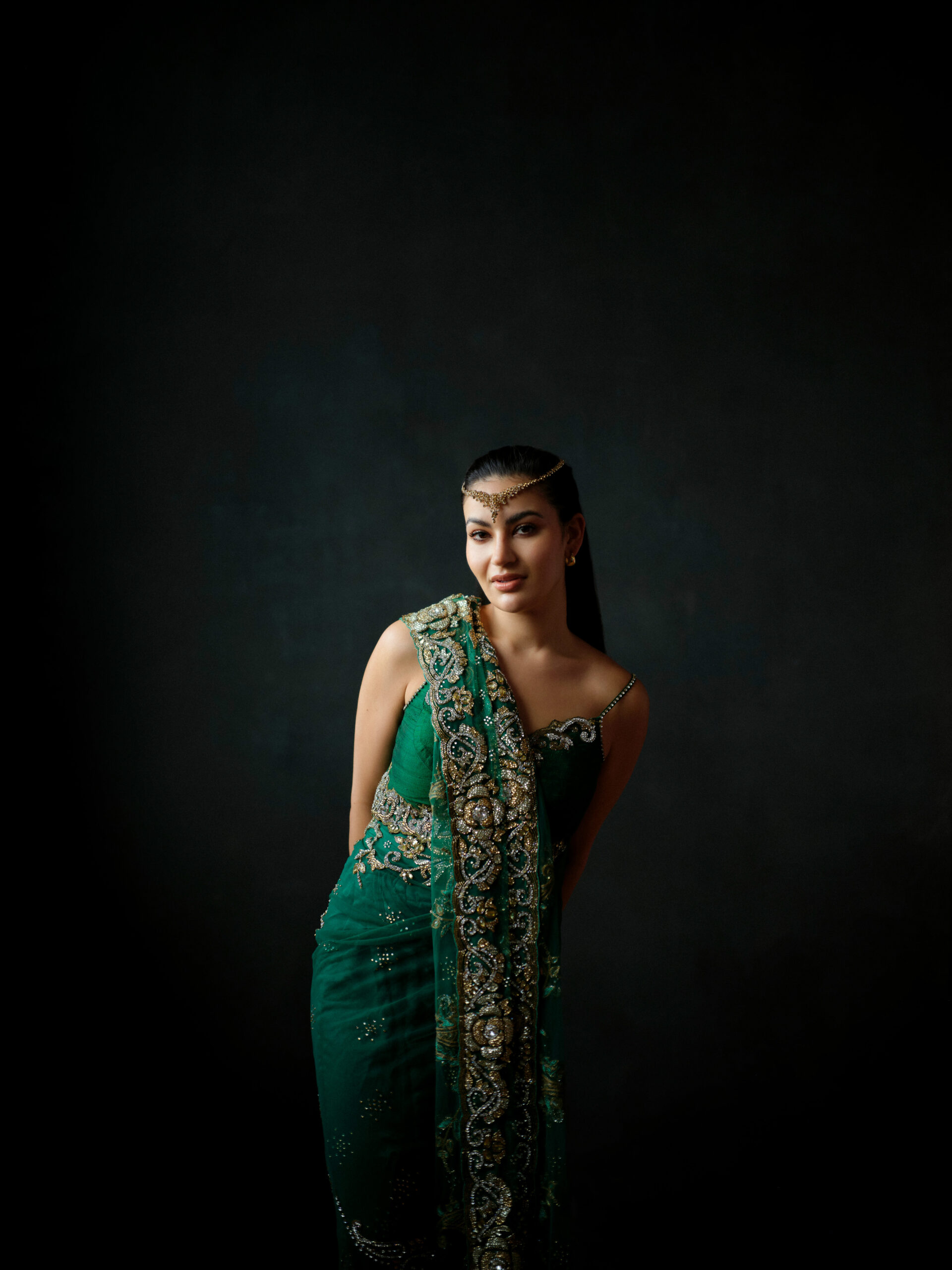
Nikhita Lesler. Image credit: Harry Livingstone
How do you highlight your mixed heritage for theatre casting?
It’s not something I try to highlight or lead with, it is just who I am. I love telling stories, and if my heritage or culture happens to be part of the character I’m playing, then that’s great. However, I don’t feel the need to make it a central focus. It’s just one aspect of what I bring to the work, and it enhances the perspectives that I’m able to bring to the character.
What can you share about your personal experience with mixed identity for anyone struggling to find their place in the industry?
Being mixed for me is the most amazing thing, not only because it makes me who I am but also because I get to be part of two beautiful cultures. Naturally, this can come with its own set of barriers, whether that’s feeling like you’re not ‘enough’ to be in a particular identity room or that you’re caught between spaces. For anyone struggling with this, I hear you, I understand you, but also please know that you are whole. Not a half or a fraction or a bit of anything.
An amazing friend of mine, Jassa Alhuwalia, started a movement called #bothnothalf and I think that this perfectly captures this idea – embracing the full, rich complexity of who we are without needing to fit into predefined boxes.
How important is it to you that the industry broadens their idea of mixed heritage actors with their approach to casting?
I would go as far as to say that it’s not just important for the industry, but for the world as a whole, to broaden their idea of mixed heritage actors in casting. Representation matters on a global scale and it’s crucial that the stories we tell and see reflect the diversity of the world we live in, rather than limiting who gets to be seen and heard.
Mixed heritage actors bring our own set of unique perspectives and experiences, being part of multiple cultures. Our stories are incredibly important and must be told, and we must also be represented.
The industry has made lots of progress, but there’s still a long way to go, and it’s very important for us all to continue pushing for inclusive, nuanced representation that speaks to all backgrounds.
How do you stay active creatively between roles when you aren’t working?
One thing that’s really helped me stay creative is practising old tapes as an exercise. I find that, as actors, we’re constantly evolving and improving our craft, so I like finding new ways to explore or even improve pieces. This not only helps me stay creative but also fills me with more confidence for auditions and work in the future.
I’ve been exceptionally lucky that acting and voice work has kept me afloat for a while now, so I’ve also delved into creating ‘The Artist’s Wallet’ – a business designed to help creative freelancers with their personal finances. I don’t think there’s a lot out there for us (well, there’s nothing) and I wanted to help others that didn’t necessarily have access to that knowledge, especially when we have such fluctuating incomes.
For anyone new to acting or starting out in the industry, what advice would you give that you wish someone had shared with you early in your career?
That you do not have to be a favourite to be successful. I was never ever a favourite at drama school (probably quite the opposite to be honest!) but making waves in the industry as an underdog is a beautifully underrated thing.
As long as you believe in you, then you’re golden.
Thanks to Nikhita for taking the time to share her experience with us.
You can find out more about Nikhita here: @nikhitalesler and more info on The Artists Wallet here: @theartistswallet
 Karen is a British actor of south Asian descent, born and raised in Birmingham, England. She is a graduate of The American Academy of Dramatic Arts in Manhattan, New York. Most notably known for her role as Nicole Shelley in the award winning Apple TV+ series Ted Lasso starring opposite Jason Sudeikis, Hannah Waddingham, Brett Goldstein and Nick Mohammed. She also played Noreen Khan in the first two seasons of the BBC television series Phoenix Rise.
Karen is a British actor of south Asian descent, born and raised in Birmingham, England. She is a graduate of The American Academy of Dramatic Arts in Manhattan, New York. Most notably known for her role as Nicole Shelley in the award winning Apple TV+ series Ted Lasso starring opposite Jason Sudeikis, Hannah Waddingham, Brett Goldstein and Nick Mohammed. She also played Noreen Khan in the first two seasons of the BBC television series Phoenix Rise.
In Theatre, Karen starred in Ayad Akhtar’s The Who and the What at The English Theatre of Hamburg in Germany and performed opposite Scottish actor Alan Cumming in the original musical Me and the girls directed by Tony award winner Douglas Carter Beane. She has also played leading roles in regional premieres of David Harrower’s Blackbird and Duncan Macmillan’s People, Places and Things. In 2022 she was directed by Iqbal Khan in Mismatch at The Birmingham Rep as part of the Sky Comedy Rep Festival. Her other credits include lead roles in Camel written by Charly Clive, Welcome to Thebes, As you like it, Lysistrata, 4.48 Psychosis, The Tempest, Good Fit, She Kills Monsters, American As, Julius Caesar for The Public Theater at Shakespeare in the Park and Journey to America at the world famous Carnegie Hall, New York.
Karen’s selected work on film includes starring in The Waves for MTV Entertainment directed by BAFTA award winner Sindha Agha, Man on the Phone for Red Bear Films and Frank’s Plan for Amazon Prime. She has also appeared in commercials for Aramco, WhatsApp with Alex Scott, TK Maxx, West Midlands Combined Authority and Northwell Health Insurance in New York. She recently performed at the An Tain Arts Centre in Dundalk, Ireland in Why are you here? Directed by Paul Hayes.
Headshot credit: Andy Brown














